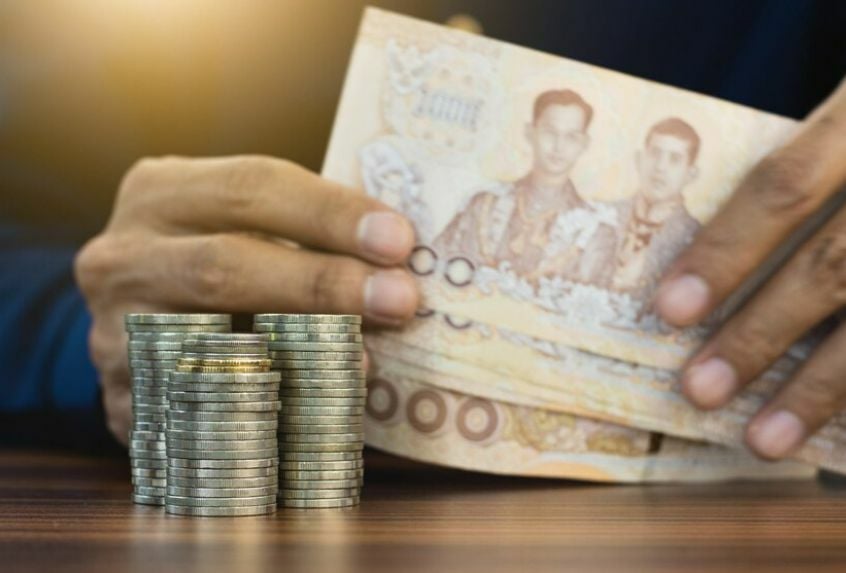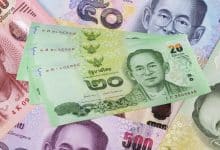Baht depreciation: Experts foresee currency’s decline amid global market turbulence

Financial experts are predicting a further depreciation of the baht throughout this month and next, due to the increased volatility in the global money and capital markets. This follows the US Federal Reserve’s recent suggestion of a potential increase in its benchmark interest rate.
Poon Panitchpibun, a strategist at Krungthai Global Market, a research centre of Krungthai Bank, noted that the baht opened yesterday, September 21, at 36.25 against the US dollar, a depreciation from the previous day’s close of 36.07.
The baht had shown a gradual strengthening, fluctuating between 35.86 to 36.23 per dollar on Wednesday night, before it slipped as the dollar and US 10-year bond yields rose, following the Federal Reserve’s hint at an additional interest rate hike this year and fewer cuts next year.
Analysts interpret the Federal Reserve’s actions as an attempt to achieve a soft landing for the US economy, a view reflected in the revised economic growth forecasts for this year and next.
The US stock market, however, is feeling the pressure from the signal of continued rate increases, potentially resulting in an extended period of elevated rates. Consequently, bond yields rose to 4.40% following the Federal Reserve’s latest policy statement and projections.
The research unit at Krungthai Bank believes the baht depreciation may be more than expected and stay weaker for longer, due to the Federal Reserve’s commitment to maintaining high interest rates over a prolonged period. The baht could also face pressure from foreign investors selling Thai assets as financial markets continue to exhibit a “risk-off” state, with a short-term rebound unlikely.
Fluctuating baht
Previously, the depreciation of the baht almost reached resistance levels, suggesting a possible weakening to a range of 36.50 to 37 against the dollar – a level considered undervalued by analysts. However, the baht could fluctuate sideways or even strengthen if influencing factors change, according to Krungthai Global Markets, which predicts the baht may appreciate to 35.80 to 36 against the dollar.
Global equity markets continue to be highly volatile due to uncertainty over the Federal Reserve’s future monetary policy and concerns about China’s economic recovery. As such, businesses are encouraged to utilise a range of hedging tools, such as options and derivatives, to safeguard against exchange rate risks.
The research centre also advises businesses to limit foreign exchange exposure by conducting transactions in local currency, whilst also considering transaction costs and preparing hedging plans prudently.
Roong Sanguanruang, head of global markets and research at Bank of Ayudhya (Krungsri), revealed investor concerns about Thailand’s rising public debt and fiscal burden, especially following Prime Minister Srettha Thavisin’s plan to issue green bonds. The 61 year old prime minister announced at the Sustainable Development Goal Summit this year in New York that the country has raised US$2.5 billion through the issuance of two sets of sustainability bonds, reported Bangkok Post.
This month the baht depreciated by 3.2%, marking the largest downturn in the region, followed by the South Korean won with a 1.4% loss. However, the baht’s movements have been consistent with other regional currencies, amid a strengthening dollar.
Roong said that given a higher level of uncertainty, the baht is expected to depreciate further against the dollar over the next two weeks through to October.
“After that, the baht should be firmer compared with the greenback, supported by the high season for tourism.”
Due to escalating uncertainties both internally and externally, Krungsri has adjusted its baht forecast for the end of this year to 35 baht to the dollar, a weakening from the earlier prediction of 34 baht.
Follow more of Thaiger’s latest stories on our new Facebook page HERE.
Latest Thailand News
Follow The Thaiger on Google News:


























